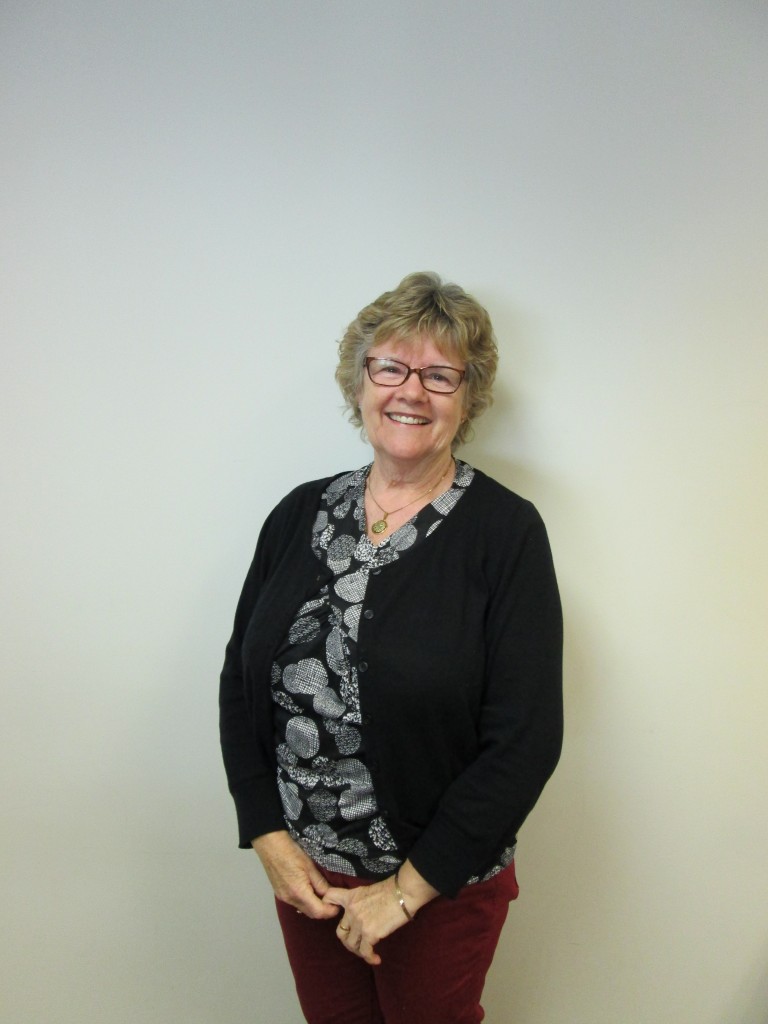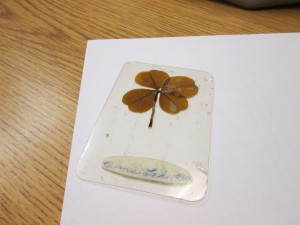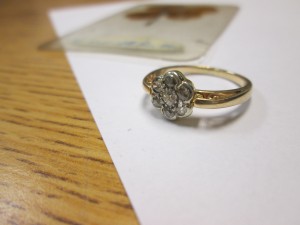 Sally Simmons was born in 1949 in Burns Lake, BC. She lived in New Westminster from 1962-67, and then has lived here from 1980 onwards.
Sally Simmons was born in 1949 in Burns Lake, BC. She lived in New Westminster from 1962-67, and then has lived here from 1980 onwards.
Her family was always close, and when her father passed away in 1957, she and her three siblings would stick together even more especially since life was hard. Her mother was working full-time, there were no after school programs and there was not much sympathy for a single mother who chose not to remarry.
In 1959, her mother was accepted to the teaching program at UBC, so the family decided to move to Vancouver. The family had to pack up their lives and could only fit whatever they can into the car, which meant only the bare essentials. Everything else was dispersed into relatives’ homes. Though the circumstances were dire, Sally remembers spotting a four-leaf clover on the ground every time she moved a load to the car, then another one, and then another one. She ended up finding 12-15.

This four-leaf clover, which her mother laminated for her, reminds Sally that things in life will be okay.
She was ten at the time but she knew that the four-leaf clover symbolizes luck for the finder (it also helped that her father was Irish). Her mother kept some of them pressed within the pages of a dictionary. For Sally, it is a little reminder that though life has its ups and downs, things will work out. Today, she carries one of the clovers, preserved between two sheets of plastic, with her in her wallet.

This engagement ring once belonged to Sally’s grandmother, who took a leap of faith in coming to Canada from Scotland. The ring will be passed on to Sally’s daughter, and her daughter’s daughters in due time.
Another family talisman she has is the ring she wears. Her ring was her grandmother’s engagement ring. Her grandfather came to Canada from Scotland and returned to Britain as a soldier to fight in World War I, which is when he met Sally’s grandmother, who was a nurse in the war. They got engaged and married during the war years then came to Canada in 1918 to start their life together.
Out of all the grandchildren, Sally got the ring because she was named after her grandmother, Sarah (Sarah is her full name). Sally gave her first daughter the name Sarah, and her granddaughter is also named Sarah as well. The ring, like the name, will be passed down along the generations in due time.
“It makes me think of what they did to leave their place and come to a new world so their children’s lives could be better.” Like how the clover represents a moment in time, the ring reminds Sally of her grandmother coming to Canada on a leap of faith.
Her advice for her 20 year old self would be to go ahead and pursue the things she want, because the glass ceiling for women would eventually be broken. Graduating in 1967, the choices for women were pretty much restricted to being a nurse, teacher or secretary. Sally chose to pursue social work, but she was also interested in fields such as architecture too. Those fields however, tended to be closed off to women. Even when she was going through her bachelor’s in psychology at SFU, most of her female friends were gone by the 3rd and 4th year to pursue one of the three typical routes or otherwise.
Despite seeing less and less women in class, her mom supported Sally in continuing her academic education. “My mum encouraged us because she lived outside the box her whole life.” Her mother was a role model in showing her that a woman can be independent and academic. Still, Sally opted to not go straight into teaching, which is what her mother did, because it would be too much like following her mother’s footsteps.
She found independent female role models in the Catholic school nuns that taught her while she was in boarding school from 1962-1967. St. Anne’s Academy, a Catholic boarding school in New Westminster, was beneficial for Sally. Despite popular negative stereotypes, Sally’s experience was different because everyone was treated equally.
“For me, being able to wear a uniform and no one knowing how poor I was, it made a levelled playing field.”
She was a good kid growing up who knew how to fly under the radar from September to June — and then have her fun too without getting into trouble.
She appreciated the teachers there who treated her like an adult and gave her the mindset that women can indeed do it all.
I would really like to connect with Sally, if possible. How could I reach Sally?